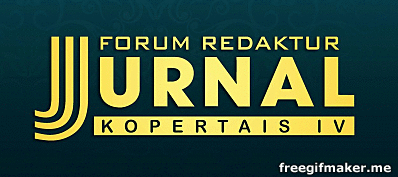OPTIMALISASI PENDIDIKAN ASWAJA PADA GENERASI MILENIAL SEBAGAI UPAYA DERADIKALISASI

DOI:
https://doi.org/10.36840/ulya.v4i1.204Keywords:
Toleran, Religion, PeaceAbstract
Radicalism is a increasingly prevalent phenomenon in Indonesia for recent
years. Radicalism increasingly developed when ‘orde baru’ (soeharto's regime)
ended. The reform era is expanding space for people to express their feeling,
including expressions of diversity. Including indicators of the emergence of
radicalism in Indonesia is the birth of religious organizations that often use violent
methods in carrying out its mission. Various radical Islamic organizations have
various characteristics, variants and also orientations. However, there are
similarities between radical Islamic organizations, namely the use of violence that
came to be known as terror. Unfortunately almost of groups are dominated by
millennial generation. This problem is a concern for the wider community
surely.Various efforts to respond radicalism also appears contra ideology between
them too. Aswaja education proved be able to prohibit radicalism viruses.
This article will present data from interviews, observations, and literature
reviews related to the topic. The arguments which built in this paper are
reconstruction and actualisation values which contained in Aswaja can be
strongly internalized in person's life, especially millenial generation. The proper
aswaja socialization and internalization is trough education. In schools, colleges,
and study forums which apply aswaja content; students, college students, and the
study participants will have opportunity to have moderate religion understanding
and will be far away from radicalism diseases.
Downloads
References
Ali, A. Mukti, Alarm Pikiran Islam Modern di India dan Pakistan, Bandung:
Mizan,1993.
Amin, M. Masyhur, NU dan Ijtihad Politik Kenegaraannya, Yogyakarta: Al-Amin
Press, 1996.
Darmadi, Ahmad, “ Pondok Pesantren dan Deradikalisasi Islam Indonesia” , Jurnal
Millah, Vol. XI, No. 1 Agustus 2011.
Departemen Pendidikan dan Kebudayaan, Kamus Besar Bahasa Indonesia, cet.
III, Jakarta: Balai Pustaka, 1990.
Hakim, Abdul ’ Dubbun’ , ” Islam, Inklusivisme, dan Kosmopolitanisme” , dalam
Abdul Halim (ed.), Menembus Batas Tradisi Menuju Masa Depan yang
Membebaskan, Refleksi atas Pemikiran Nurcholish Madjid, Jakarta:
Kompas dan Universitas Paramadina, 2006.
Hakim, Lukman, Perlawanan Islam Kultural: Relasi Asosiatif Pertumbuhan Civil
Society dan Doktrin Aswaja NU, Surabaya: Pustaka Eureka, 2004.
Hassan, Nik Mustapha Hj. Nik, “ Civil Society for Sustainable Economic
Development” , dalam Syed Othman Alhabshi and Nik Mustapha Nik
Hassan (eds.), Islam Knowledge and Ethics: a Partinent Culture for
Managing Organizations, Kuala Lumpur: Institute of Islamic Understanding
Malaysia (IKIM), 1998.
Kato, Hisanori, Kangen Indonesia, Indonesia di Mata Orang Jepang, cet. III,
Jakarta: Kompas, 2013
Ma’arif, Ahmad Syafii, Islam dalam Bingkai Keindonesiaan dan Kemanusiaan:
Sebuah Refleksi Sejarah, Bandung: Mizan bekerja sama dengan Ma’ arif
Institute Jakarta, 2009.
Madjid, Nurcholish, Islam, Doktrin dan Peradaban, Jakarta: Paramadina, 1992.
Mansyur, Wasid, Menegaskan Islam Indonesia, Belajar dari Tradisi Pesantren
dan NU, Surabaya: Pustaka Idea, 2014.
Muchtar, Masyhudi, dkk., Aswaja an-Nahdliyah, Ajaran Ahlussunnah wa
alJama’ ah yang Berlaku di Lingkungan Nahdlatul Ulama, Surabaya:
Khalista dan LTN NU Jawa Timur, 2007.
Muhammad, Hussein, ” Memahami Sejarah Ahlus Sunnah Waljama’ ah yang
Toleran dan Anti Ekstrem” , dalam Imam Baehaqi (ed.), Kontroversi
Aswaja, Aula Perdebatan dan Reinterpretasi, Yogyakarta: LKiS, 2000.
Qodir, Zuly, Radikalisme Agama di Indonesia, Yogyakarta: Pustaka Pelajar,
Beyer, Peter Religion and Globalization, New York: Sage Publication, 2002
Qomar, Mujamil, Menggagas Pendidikan Islam, Bandung: Remaja
Rosdakarya,
Downloads
Published
Issue
Section
License
Copyright (c) 2019 Al Ulya

This work is licensed under a Creative Commons Attribution-ShareAlike 4.0 International License.
 pdf (Bahasa Indonesia) Download: 84
pdf (Bahasa Indonesia) Download: 84













